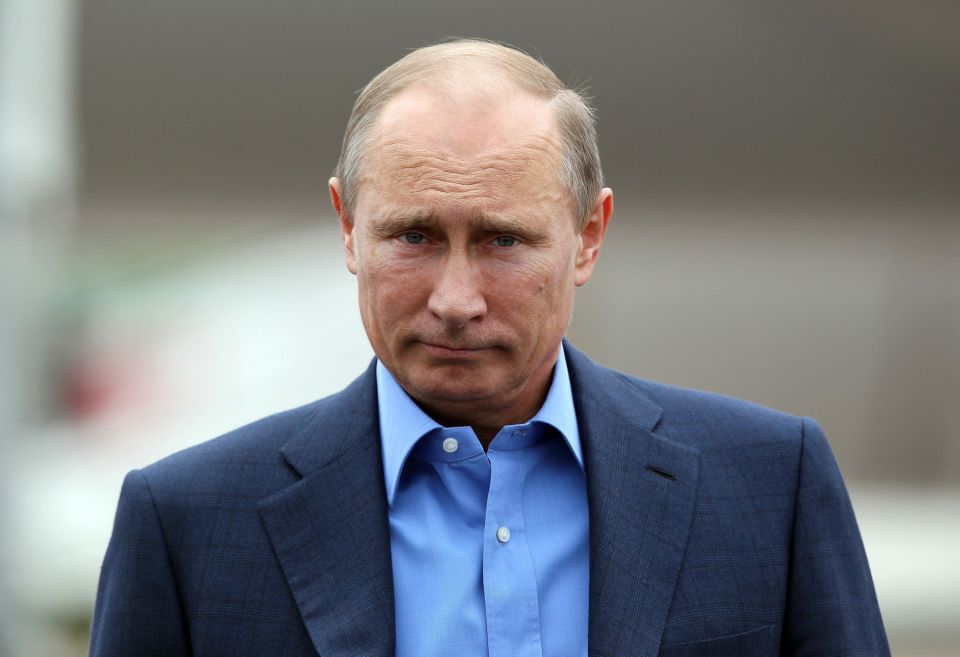VLADIMIR PUTIN has been re-elected as President of Russia three times since he first took the position in 2000.
The former intelligence officer, who was also been Prime Minister of Russia, is expected to run again in the country’s 2024 election.
PA:Press Association President Vladimir Putin wants to cling on to power until 2036[/caption]
How long has Vladimir Putin been President for?
Vladimir Putin has had two separate stints as President of Russia and is the longest-serving leader since Joseph Stalin.
In August 1999, Putin was appointed acting Prime Minister by then-president Boris Yeltsin.
He has been in office as president or prime minister ever since.
Putin won his first presidential election in 2000 and secured his second win in 2004.
In 2008 he lost his position because of constitutional limits that banned him from serving more than two consecutive presidential terms.
Putin then became prime minister after his ally, Dmitry Medvedev, was named president.
MORE ABOUT PUTIN
Putin returned to the presidency in 2012 after winning a re-election – with over 60 per cent of the vote – after a decision to extend presidential terms to six from four years.
Large anti-Putin protests took place before and after the vote, with critics alleging voter fraud.
Putin won a landslide re-election victory in March 2018, days after former Russian spy, Sergei Skripal, and his daughter Yulia, were poisoned in England with a nerve agent.
This re-election gave Putin the mandate to stay in office until 2024.
In July 2020, Russians voted for constitutional changes that will allow Putin to run for president twice more.
This could mean Putin being in power until 2036.
Critics said the outcome of the vote was falsified on an industrial scale but, in 2021, Putin signed the constitutional amendments into law.
As of November 2023, Putin is yet to announce plans to run for president in 2024 but it has been widely reported that he will.
MORE ABOUT PUTIN
What has Vladimir Putin done as President?
Putin has been involved in a number of high profile policies and events during his time as president.
Some of the most controversial include:
Alexander Litvinenko
Former Russian spy Alexander Litvinenko was killed in London by radioactive polonium-210 in 2006.
He died an agonising death three weeks after the poison was slipped into his cup of tea.
The 44-year-old had been an officer with the Federal Security Service (FSB) – the successor to the KGB – but he fled to Britain after criticising Russian president Vladimir Putin.
In 2021, the European Court of Human Rights found Russia responsible for his death.
Pussy Riot
US, EU and human rights groups condemned the jail sentences imposed on three members of Russian political punk band Pussy Riot over an anti-Putin protest in a Moscow cathedral in 2012.
Maria Alyokhina and Nadezhda Tolokonnikova served 21-month jail terms following their performance at the religious site.
Alyokhina was then detained in August 2017 in the Siberian city of Yakutsk after protesting with another Pussy Riot member against the imprisonment of Ukrainian film-maker Oleg Sentsov.
Alexei Navalny
Opposition activist Alexei Navalny was sentenced to five years in prison on embezzlement charges before being released on appeal in 2012.
He was hospitalised after developing an acute “mystery allergy” a day after mass protests in Moscow in August 2020.
German officials found traces of the nerve agent Novichok.
In 2021, he was re-arrested in Russia – charged with probation offences after receiving life-saving treatment in Germany.
Annex of Crimea
The Crimea peninsula was annexed from Ukraine by Russia in March 2014.
The conflict came after Ukraine’s pro-Kremlin president Viktor Yanukovych was driven from power after violent protests.
Forces backed by Moscow seized control of the Crimea, which has a Russian-speaking majority, and the people voted to join Russia in a referendum which was deemed illegal by Ukraine and the West.
Olympic ban
In 2017, Russia were banned from the Winter Olympics over state-sponsored doping.
The ban of Russia was given following an investigation during the 2014 Winter Olympics in Sochi that found state-sponsored doping in the country.
They were also banned from the delayed 2020 Olympic games in Tokyo.
Novichok poisoning
Sergei Skripal and his daughter Yulia were exposed to a nerve agent and fell gravely ill after having a pizza lunch in Salisbury on Sunday, March 4, 2018.
They were found slumped on a bench in a “catatonic state” and spent weeks critically ill in hospital.
Anti-terror police investigated the poisoning and discovered the agent used was military-grade Novichok, made in Russia.
Russia denied that their special services were involved in the attack, which sparked a diplomatic spat and the expulsion of embassy staff.
Police believe the pair were exposed to the nerve agent after it was left on the front door of Skripal’s home.
Ukraine – Russia war
In February 2022, reports emerged that Russia had begun its invasion of Ukraine after Putin announced the “sovereign rights” of the disputed Donbass region.
Hours later tanks were spotted crossing the border as fears mounted that Moscow was poised to move beyond the rebel held pockets to snatch more territory from Ukraine.
At the time, it was reported that there were 200,000 troops ringing the eastern European nation.
As of November 2023, Russia still occupies parts of Ukraine as the war continues.
Will there be another Russian presidential election?
Presidential elections are scheduled to be held in Russia in March 2024 and will be the first to take place after the 2020 constitutional reforms.
The first round will be held on Sunday, March 17.
If no candidate receives more than half the vote, a second round will take place exactly three weeks later on April 7, 2024.

